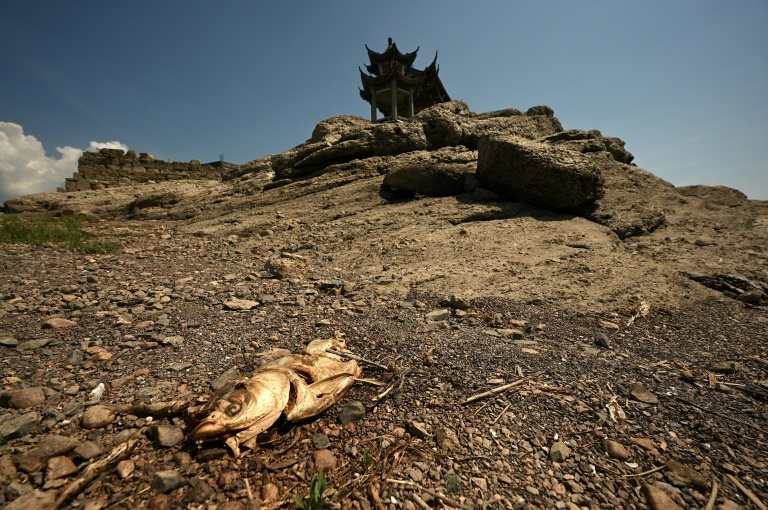Southern China has recorded its longest sustained period of high temperatures and low rain "with the widest in scope and the highest average intensity since 1961"
China’s autumn harvest is under “severe threat” from high temperatures and drought, authorities have warned, urging action to protect crops in the face of the country’s hottest summer on record.
The world’s second-largest economy has been hit by record temperatures, flash floods and droughts this summer — phenomena that scientists have warned are becoming more frequent and intense due to climate change.
Southern China has recorded its longest sustained period of high temperatures and sparse rain since records began more than 60 years ago, the agriculture ministry said.
Four government departments issued a notice on Tuesday urging the conservation of “every unit of water” to protect crops.
“The rapid development of drought superimposed with high temperatures and heat damage has caused a severe threat to autumn crop production,” the statement said.
China produces more than 95 percent of the rice, wheat and maize it consumes, but a reduced harvest could mean increased demand for imports in the world’s most populous country — putting further pressure on global supplies already strained by the conflict in Ukraine.
Temperatures as high as 45 degrees Celsius (113 degrees Fahrenheit) have led multiple Chinese provinces to impose power cuts, as cities struggle to cope with a surge in demand for electricity that is partly driven by people cranking up the air conditioning.
The megacities of Shanghai and Chongqing have cut outdoor decorative lighting, while authorities in Sichuan province have imposed industrial power cuts after water levels dropped at key hydroelectric plants.
The searing heat is also drying up the critical Yangtze River, with water flow on its main trunk about 50 percent lower than the average over the last five years, state media outlet China News Service reported last week.
– ‘Worst heatwave ever’ –
In Chongqing, where more than 1,500 people were evacuated after hot and dry conditions sparked multiple wildfires, locals were struggling.
“I feel too hot to sleep every night, and I’m awakened by the heat every morning,” Xu Jinxin, a 20-year-old student, told AFP.
“Because of the electricity shortage, we don’t leave the air conditioner on all day but rather turn it off once it’s cooled down a bit.”
The national meteorological service renewed its warnings for drought and high temperatures on Tuesday, calling for 11 provincial governments to activate emergency responses.
Authorities have already turned to cloud seeding — a method to induce rainfall — in parts of the country.
State broadcaster CCTV published footage this month showing meteorological staff shooting catalyst rockets into the sky and firefighters transporting water to farmers in need.
“This is the worst heatwave ever recorded,” climate and energy expert Liu Junyan of Greenpeace East Asia told AFP.
“Climate science shows extreme heat is becoming exponentially worse,” she said.
“So it’s more likely that next year will have record-breaking heat.”
This year’s extreme weather is raising public awareness of climate change in China, with state media “now coming around to covering climate impacts” with unprecedented urgency, Liu said.
Government climate expert Zhou Bing warned over the weekend of mass displacement caused by climate change, describing extreme weather as nature’s “revenge” on humanity.
China has experienced three other episodes of intense heat so far this century — in 2003, 2013, 2017.
The gap between heatwaves is “significantly shortening”, according to Zhou.
For those living through the sweltering summer, “life goes on with some endurance”, said Xu, the Chongqing resident.









